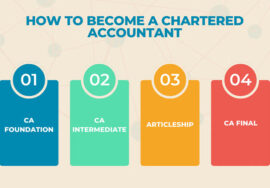
Tax compliance for freelancers In India
For freelancers and gig economy workers in India, tax compliance is essential to avoid penalties, ensure financial security, and contribute to the country’s economy. Here’s a guide on the essentials:
Understanding Income Tax for Freelancers and Gig Workers
Freelancers and gig workers in India are considered self-employed or business professionals. They earn income from multiple clients or platforms, and their income is subject to tax under the head “Profits and Gains from Business or Profession.”
Key aspects:
Income Tax Slabs: Income is taxed based on the applicable tax slab rates, similar to salaried employees. However, the taxpayer can choose between the old regime (with deductions) or the new regime (with lower rates but fewer deductions).
Applicable Sections: Section 44ADA, introduced in 2016, is a presumptive taxation scheme specifically for professionals. If eligible, they can declare 50% of their gross receipts or turnover as income (and are not required to maintain detailed books).
Filing Income Tax Returns (ITR)
Freelancers must file ITR based on their annual income. Typically, ITR-3 or ITR-4 forms are used:
ITR-3: For freelancers with detailed income and expense records.
ITR-4: For those opting for the presumptive taxation scheme under Section 44ADA.
Deadlines: The usual deadline is July 31 of each financial year (April 1 to March 31). Late filing attracts a penalty.
Tax Deducted at Source (TDS)
Clients often deduct TDS before paying freelancers. Freelancers must keep track of TDS deductions using Form 26AS, which records the tax collected on their behalf. TDS can be claimed as a refund or adjusted while paying income tax.
Calculating Income and Expenses
Freelancers can reduce taxable income by deducting legitimate business expenses:
Allowable Deductions: Rent, utility bills, internet charges, travel expenses, office supplies, software costs, and other expenses directly related to work.
Personal Expenses: These are not deductible and should be kept separate from business expenses.
GST Compliance for Freelancers
The Goods and Services Tax (GST) applies if annual turnover exceeds ₹20 lakh (₹10 lakh in certain northeastern states):
GST Registration: Required for those above the threshold. Once registered, freelancers must file regular GST returns and charge GST on services provided.
GST Rate for Freelancers: Generally, a standard rate of 18% applies to services.
Input Tax Credit (ITC): Freelancers can claim ITC on goods and services used for business purposes, reducing their GST liability.
Advance Tax
Freelancers whose tax liability exceeds ₹10,000 in a financial year must pay advance tax quarterly. The dates and percentages are:
15% by June 15
45% by September 15
75% by December 15
100% by March 15
Timely payment helps avoid interest and penalties under Section 234B and Section 234C.
Maintaining Financial Records
Freelancers should maintain organized financial records for accurate filing and expense tracking:
Bank Statements: Keep all business-related bank statements.
Invoices and Receipts: Ensure every payment is invoiced and every expense has a receipt.
Digital Tools: Consider using software like QuickBooks or Zoho Books to automate accounting.
Professional Tax Assistance
Consider consulting a tax professional to manage complex scenarios, such as high income or multiple revenue streams. Professional guidance can help with tax-saving strategies, deduction optimization, and ensuring compliance.
Summary Checklist for Compliance
Choose the right ITR form and regime (old or new).
Track TDS and claim it during filing.
Register for GST if income crosses the threshold.
Pay advance tax if required.
Keep detailed financial records.
Use deductions for allowable business expenses.
With regular compliance, freelancers and gig workers can simplify tax filing, avoid penalties, and improve financial health.





